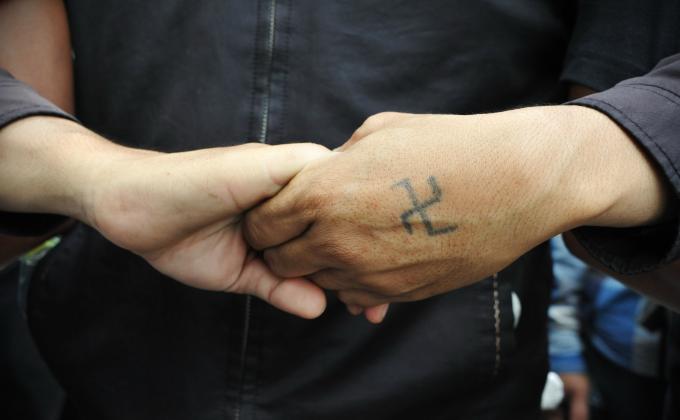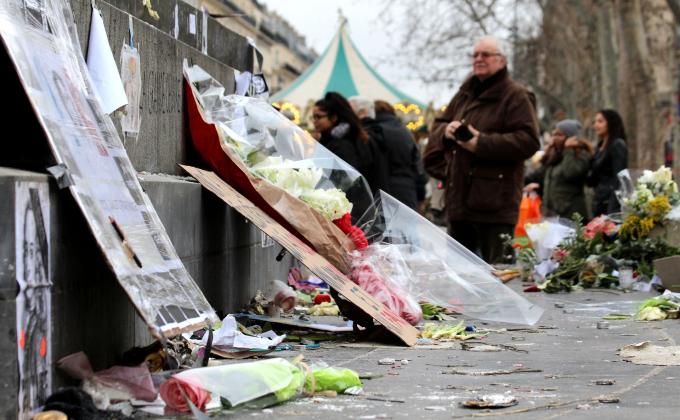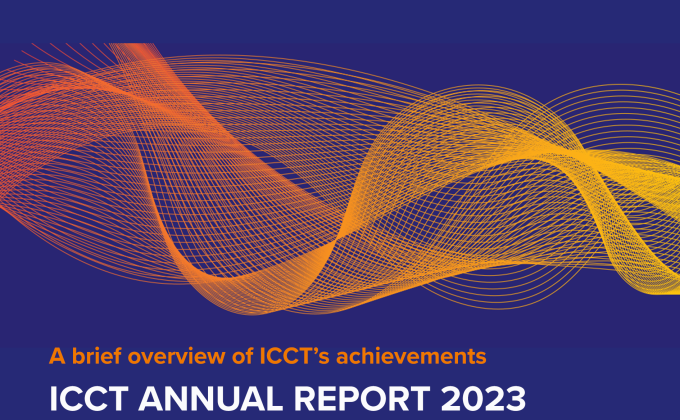Terrorist organisations in Indonesia have been weakened significantly in the last five years. Not only have key pro-Islamic State (IS) organisations like the Jemaah Ansharut Daulah (JAD) become increasingly decentralised to the point of being unable to collectively devise a common strategy and mobilise resources, the country’s most well-known terrorist organisation, Jemaah Islamiyah (JI), is currently leaderless following the capture of several senior members since mid-2019. Consequently, the frequency and lethality of terrorist attacks in Indonesia has substantially reduced. Whereas organisations in the 2000s annually conducted two to three large-scale attacks, like the 2000 Christmas Eve Bombings which simultaneously targeted churches in nine cities, terrorist attacks in Indonesia today are largely opportunistic and small-scale. The most recent 2022 Astana Anyar Bombing, for example, resulted in 10 casualties.
Yet, Indonesian terrorist organisations remain resilient, particularly JI. The organisation was deemed defeated in 2008 following a 2007 crackdown of JI’s base in Central Sulawesi and the subsequent arrest of its then-leader, Zarkasih. In 2009, however, JI appointed a new leader, Para Wijayanto, who restructured the organisation to prioritise dawah (preaching) and internal cohesion. By 2014, JI was sending selected members to Syria for military training with Jabhat al Nusra, operating palm oil plantations in Sumatra and Kalimantan, and regularly conducting dawah initiatives to university students. When Para Wijayanto was arrested in mid-2019, police investigations uncovered that JI had around 6,000 members across the country, some of whom were active within government institutions.
Today, even after the arrest of Wijayanto, and amidst the organisation’s current leaderless state, JI remains operationally strong –– members are raising funds, purchasing firearms, and are being promoted into key positions. This article looks at how JI is able to remain resilient and sustain their operations following the arrest of their leader and senior members between mid-2019 and 2022. It uses publicly available court documents to argue that such resilience is the result of three main factors: JI’s development of organisational security initiatives, success in instilling membership discipline, and creation of contingency leadership structures. These factors together ensured that JI could minimise the damaging effects of members’ arrest, rely on other members to continue their operations, and coordinate a common strategy for their future –– all while the organisation remains leaderless.
Jemaah Islamiyah’s Sustained Operations
In recent years, JI members have increasingly become the main target of Indonesia’s counter-terrorism operations. In 2019, only 8 percent of arrests comprised JI members. In 2021, over 49 percent of total arrests targeted JI members. In 2023, this number increased to 59 percent. Overall, 346 JI members have been arrested within the past five years. Other than JI’s leader Para Wijayanto, these arrested members included key seniors such as Abu Rusydan, a member of JI’s Shura Council which plays a major role in appointing new leaders; Askary, the son of Para Wijayanto and a potential candidate for leadership; and Adung, a former JI leader in 2003 and the Head of JI’s Family Welfare Division (Khidmat Kesejahteraan Keluarga Muslim, K3M).
These arrests represented a major setback for JI. In response, JI was forced to halt the operation of several key divisions between 2019 and 2021. In June 2019, for example, the organisation disbanded its Coordination and Synchronisation Division (Koordinasi dan Sinkronisasi, KOSIN) which was responsible for resolving managerial and inter-operational disputes. In August 2019, the head of JI’s Regional Command dissolved JI’s Intelligence Division (Al Amnu Wal Istikhbaro, ALWI), the division in charge of securing meeting venues, monitoring counter-terrorism operations, and developing codes for encrypted communication between senior members. Moreover, in June 2020, JI stopped the operations of its Education and Cadet Academy (Akademi Pendidikan dan Kaderisasi, ADIRA), the main division that was tasked to train, vet, and assign organisational roles to recruits.
Despite these setbacks, however, three key JI operations were sustained during this period. The first operation involved fundraising activities. Notably, between 2019 and 2021, JI-affiliated charity organisations like Syam Organizer and the Abdurrahman bin Auf (ABA) Foundation were still very much active. They were raising funds through direct donations and charity boxes, and were still promoting JI members as their new Heads of Programs. The ABA Foundation, for instance, raised IDR 24 billion (USD 1.6 million) in 2019 and sent IDR 409 million (USD 27,000) to JI’s Central Regional Command between 2019 and 2021. While these foundations have stopped operating following the arrests of ABA treasurer Raden Wibowo and Syam Organizer members in 2021, other lesser known and more local JI-affiliated charities, such as the At Taubah Foundation (Yayasan At Taubah) and the Dar Fatimah Orphan Foundation (Yayasan Yatim Dar Fatimah), still operate.
In addition to affiliated charities, JI’s other fundraising streams also continued to generate funds during this time. These include its membership dues, taxes from JI-affiliated businesses the Samudera Jaya Abadi Ltd, and excess operational budget from its network of madrassas (religious schools) across Central Java, East Java, Lampung, and West Java. Moreover, the organisation also innovated new ways to conduct fundraising. In 2020, for example, JI developed a COVID-19 Emergency Team which was tasked to collect donations from the public to support JI’s in-need families and activities. In East Java, JI’s Enforcers of the Deen (Iqomatuddin) Faction, led by Usman bin Sef, solicited donations from the parents of Al Mustaqbalana Madrassa’s students. This money was used to pay for the land Usman bought for a new madrassa in Sidoarjo, East Java costing up to IDR 1.2 billion (USD 78,200).
The second activity that was sustained during this period was JI’s internal coordination and regeneration efforts. Notably, even as senior members were being arrested, JI divisions were still conducting regular meetings to supervise and evaluate their members’ activities. In the months following Para Wijayanto’s capture, for example, JI’s Western Regional Command toured across West Java and North Sumatra under the guise of a Soyaku and Kangen Water company seminar event to direct cells to “remain calm” and prioritise fundraising efforts. They toured again on August 2020 and December 2020, this time instructing cells to prioritise supporting JI’s membership relocation program. Concurrently, JI’s All-Purpose Division (Tholiah) also continued to conduct regular meetings. They held at least three meetings in West Java between mid-2019 and 2020 –– all to evaluate the division’s performance in assisting JI seniors who were fleeing from authorities.
During this time JI divisions and regional commands were also still promoting members into key positions –– demonstrating its ability to still regenerate its ranks. Ahmad Zaini, for example, a JI member who went into hiding in 2006 and resurfaced in 2011 as part of Lampung Cell’s Membership Empowerment Division (Taqwiyah), was appointed as the Head of JI’s Regional Command in October 2019. Muhammad Hadi Mustofa, a JI member who joined in 2005, was also appointed as the Head of the Central Sumatra Cell in March 2020. Around the same time, Fuad Junaidi, a JI member who became inactive in 2003 and rejoined in 2013 as the Head of Banten Cell’s Dakwah Division, was appointed as the Head of the Banten Cell in September 2020.
The third activity that was sustained during this period was JI’s dawah efforts via public mass organisations in Indonesia. For instance, Zain an Najah, a JI Shura Council member who had served in the national fatwa (religious ruling) commission of both the Indonesia Islamic Dawah Council (Dewan Dakwah Islamiyah Indonesia, DDII) since 2010 and the Indonesian Ulama Council’s (Majelis Ulama Indonesia, MUI) since 2015, continued working within these latter two legal, nationally-recognised organisations and giving sermons until late-2021 when he was arrested. Similarly, another member of JI’s Shura Council, Farid Ahmad Okbah, also persisted in his attempts to conduct dawah through political parties during this period. Okbah first sought leadership within the new Masyumi Party in November 2020, then subsequently established his own People's Dawah Party in May 2021, prior to his arrest in late 2021.
In addition to these two well-known cases, there are other more local initiatives by JI to conduct dawah via mass organisations between 2019 and 2021. The organisation’s East Java cell, for example, successfully inserted members into key positions of the Surabaya Branch of Muslim Bikers Indonesia (MBI) in late 2019. By 2020, JI members were operating as the organisation’s leader, logistics officer, dawah officer, and human resource officer respectively, and was using the MBI to preach among the local biker community. Also in late 2019, JI’s North Sumatra cell formally established the As Habul Khafi Madrassa in Medan, North Sumatra which targeted local university students. The madrassa was fully operational throughout 2020 –– it was teaching students, promoting itself through mosque flyers in universities, and raising funding from the local communities.
Explaining Jemaah Islamiyah’s Resilience
Organisational Security Initiatives
The first factor that enabled JI to sustain operations during this period is the development of their organisational security initiatives, which have enhanced the group’s ability to anticipate potential arrests and pre-emptively minimise their impact. The most important of these initiatives is JI’s Perisai Nusantara Esa Foundation (PERISAI) –– a public, legal advocacy group based in Java that was established in 2017 by JI’s Support (Tajhiz) Division to assist its counter-intelligence efforts. Through PERISAI, the Tajhiz Division was able to inconspicuously interact with lawyers who defended suspected JI members, and attain updated information on proceedings in return for monthly financial support. Often, this would include names of other JI members who were mentioned in depositions and witness testimonies, which allowed the Tajhiz Division to inform affected members before the arrest occurred.
Another important initiative is JI’s creation of the Total Safety-Total Solution (Total Amniah Total Solution, TASTOS) principles, which contains a comprehensive set of operational security guidelines covering various subjects ranging from secure communication methods to counter-surveillance tactics. Its most important guideline is a set of directions to take when one suspects their imminent arrest: how to reappoint successors, eliminate JI-related items, and relocate to a different province. By adhering to these directions, members knew what to do when the Tajhiz Division informs them of their potential arrest, ensuring that their work will be continued afterwards. In 2019, for instance, Diki, a senior member of JI’s Communication Courier Team, was able to quickly contact and safely transfer the team’s membership data to another member before relocating to avoid arrest –– allowing them to appoint a new leader and continue Diki’s work.
One last security initiative that played a crucial role in minimising the damage of arrests is JI’s Fugitive (Matlubin) Programme –– a programme established to help senior members flee from police arrest so they can continue to provide the organisation guidance. Upon request, the programme would book them tickets to relocate, rent them a house to live in, and provide them monthly financial assistance. When former JI leader Adung suspected he was going to be arrested in mid-2019, for example, the Matlubin Programme relocated him to Bogor with the assistance of another JI member. Similarly, in 2018, when Zulkarnaen, a senior JI commander, was fleeing arrest, the Matlubin Programme rented him a house in Lampung, provided him a motorbike, and a monthly stipend of IDR 2 million (USD 130).
Internal Disciplinary Measures
The second reason JI was able to remain operationally resilient is owed to their uncompromising stance in cultivating members’ discipline. This, in turn, has ensured that members will independently adhere to JI’s strategy, even without senior supervision. This effort begins as early as recruitment, which involves a two-year, multi-stage process that tests candidates’ Islamic knowledge, loyalty to the organisation, and ability to unquestioningly conduct assignments. One of the first tests given to recruits of JI’s North Sumatra Cell, for example, was to wait an indefinite amount of time in Medan’s city centre for an unknown instruction. Once recruits passed these tests, they still have to go through a one-year training programme by JI’s ADIRA Division where they are taught further on the virtue of adhering to JI’s strategy and operational principles.
Importantly, however, JI’s efforts to instil discipline among members do not stop at the recruitment phase. As mentioned above, JI divisions and units regularly meet to review members’ performance. Often times, these are accompanied by a re-socialisation of JI’s strategy and standard operating procedures (SOP). In 2015, for example, JI’s Western Regional Command toured Lampung to re-socialise JI’s strategy among local cells. During the same year, JI’s Tholiah Division toured various provinces to do the same. This re-socialisation of JI principles, however, was most often done to members who were sent to Syria. These individuals would be tested for their discipline during selection, be asked to recite their pledge of allegiance and organisational responsibilities before they left, and do so again after they returned –– ensuring that JI’s most militant members, are their most disciplined.
Additionally, throughout Para Wijayanto’s leadership, JI was also not afraid to punish members who violated the organisation’s SOPs. It developed an Internal Policing Division (Hisbah) which identified SOP violators and notified either the KOSIN Division or Para Wijayanto himself for disciplinary actions. A notable example of this is Muhammad Jamaluddin, the Head of JI’s Madrassa Coordination Division (Forum Koordinasi Pondok Pesantren, FKPP) since 2013 who was demoted in 2017 because he ignored Para Wijayanto’s request to evaluate JI madrassa curriculum. Another example is Hadi Masykur, Para Wijayanto’s Personal Secretary since 2010, who was demoted in 2015 because he left his area of operations without permission. As a result of this, JI has ensured that the members who remain in important JI positions, are those who will adhere to the organisation’s SOP –– regardless of developments.
Contingency Leadership Structure
The third factor that enabled JI to sustain operations during this period was their immediate creation of a contingency leadership structure following Para Wijayanto’s arrest. This new structure, the Leadership Search Council (Tim Lajnah Ihtiar Linasbil Amir, Tim Lajnah), was formulated in late 2019 by three JI seniors, namely Arif Siswanto, Sirojuddin, and Hasan Partono, with the approval of former JI leaders and Afghan alumni such as Zarkasih and Muhaimin Yahya. The team, led by Arif Siswanto up until his capture in December 2020, was mainly tasked to facilitate the appointment of a new JI leader. In doing so, they met with other JI seniors between late 2019 to mid-2020, such as Solahudin, Adung, and Abu Rusydan, who suggested that candidates should be young, experienced in conducting dawah and managing an organisation, and have not been captured by authorities.
In addition to facilitating JI’s leadership regeneration, however, Tim Lajnah was given authority to act as JI’s caretaker. In doing so, the team enacted various policies that helped divisions sustain operations. They appointed new division heads, developed new units like the aforementioned COVID-19 Emergency Team, and, most importantly, restructured JI’s chain of operational command around the organisation’s regional command teams. Whereas before, JI divisions at the regional level reported to and were directed by their respective central level command structures, now they are directed by the head of their respective regional command structures instead. This has not only allowed JI divisions to prioritise more local initiatives tailored to the needs and context of their regions, but also prevented the cross-regional snowballing of arrests when it occurs.
Another important policy that Tim Lajnah made was to readjust JI’s operational priorities and standardise them across regional commands. After coordinating with seniors such as Farid Okbah, Zain an Najah, and Zarkasih, the team decided that all regional commands should prioritise five main tasks. As stated in Abdul Rouf’s court documents, these tasks include carrying out dawah activities, enhancing the dedication of JI members to their organisational responsibilities such as submitting organisational levies, and adhering to operational principles, strengthening operational oversight, bolstering communication security, and improving the well-being of members. Having established these priorities, Tim Lajnah members directed each regional command to follow them –– ensuring that despite their newfound authority, all JI regional commands still work towards the same short-term and long-term objectives.
Conclusion
Founded in 1993, this year signifies JI’s 30th year of active operations. Evidently, its seniors have learned much from their past experiences and invested in the appropriate set of initiatives that have strategically positioned the organisation for resilience in the face of mass arrests. By developing various organisational security initiatives, JI divisions could anticipate and minimise the damage from arrests; by cultivating discipline, members are able to independently operate without senior supervision; and by creating contingency leadership structures, the organisation could standardise common operational priorities across cells. Hence, even with the arrest of its leaders, JI as an organisation has the tools it needs to survive and potentially make a comeback in the future –– whatever that comeback may look like. They had done this before in 2010, and are poised to do so again if given the opportunity.
There are two crucial lessons to take from JI’s ability to survive this period of arrests. Firstly, the impact of leadership decapitation hinges significantly on a leader’s prior efforts to fortify organisational resilience. In instances where leaders, such as Para Wijayanto, have implemented robust contingency programmes to anticipate their arrest, it is likely that the organisation they lead can continue functioning effectively in their absence. Secondly, Indonesia’s counter-terrorism operations need to broaden their focus beyond mere leadership decapitation. Instead of focusing on identifying JI’s new potential leaders, operations should prioritise on dismantling JI’s initiatives that continue to sustain their resilience –– namely JI’s Tim Lajnah, Matlubin Program, and counter-intelligence operations. By targeting these key components, future leadership decapitation operations can result in definitive weakening of JI.








